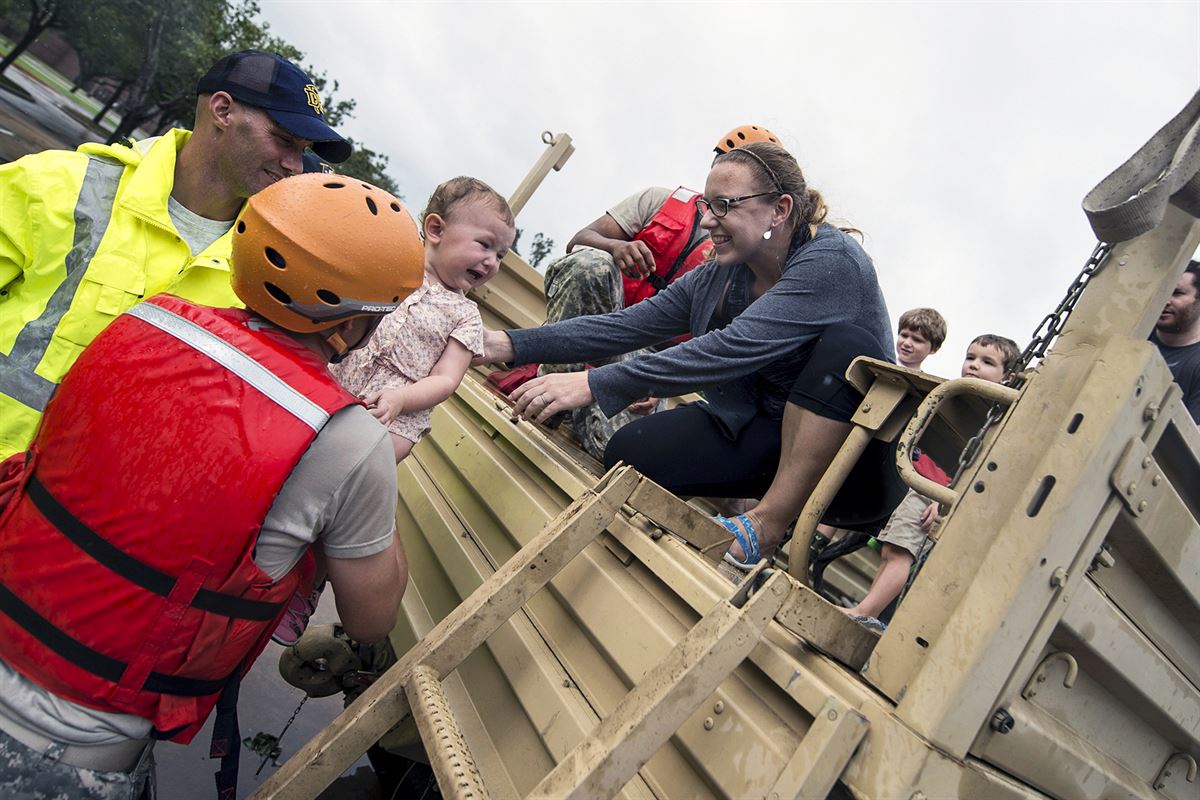
The recent hurricanes that hit Texas and Florida had a devastating impact on families. Long after the storms passed, the process of rebuilding communities will continue.
Throughout the nation, prayer and support has been offered up to help the victims recover from these most recent natural disasters. Groups and individuals have rallied to help rebuild homes and businesses and contribute donations of food, clothing, and building supplies.
But there is one group of innocent victims that may have more severe emotional trauma than we can imagine, and who will need extra help in dealing with the devastation these storms left behind.
Children who have witnessed and survived a natural disaster are often a group without a voice. While communities focus on the physical needs of their residents — such as food, water, and shelter — the emotional toll caused by a traumatic event is just as important to address, especially for impressionable and vulnerable children.
These children may have lost their home, a pet – or worse, a friend or family member – in the devastation. They may have been uprooted from everything they know; living in transitional housing or shelters or unable to return to their school due to building damage.
The children in storm-ravaged communities need to be monitored even more so than adults. They are far more susceptible to trauma and may be experiencing long-lasting emotional issues because of it.
Emotional trauma in children can manifest itself in many ways, from social withdrawal or disinterest in their previous activities, to separation anxiety from family, to anger and indifference. They may also experience physical symptoms such as losing their appetite, bedwetting, losing sleep or wanting to sleep too much.
Because children are literal, they may think the storm took everything away from them permanently and that they will never get back to normal. Their home and routine was their security, and now it may be gone.
First and foremost, any child who exhibits symptoms of anxiety or post-traumatic stress following a natural disaster should be seen by a trusted counselor or physician. Someone they may be familiar with from their school or church is a great choice to begin a dialogue into what they are feeling, and they can provide referrals to others who can help with the process.
Psychology Today has some great tips on opening the lines of communication with your child:
- Ask your child open-ended questions about what they remember of the hurricanes and the flooding: What do you remember seeing? What do you remember hearing? What do you remember feeling? What do you remember thinking?
- Ask your child what they might be worried, sad, scared, or mad about now.
- Validate children’s feelings and invite them to ask you questions.
- Children often worry about their own safety and the safety of their loved ones after a traumatic event. Reassuring them that they are safe, with a proactive safety plan in place can help kids feel calmer.
- Try to create consistency and routine in your children’s lives. Predictability lends itself to a sense of control and efficacy.
- Invite your children to draw pictures and write letters to share their thoughts and feelings with you and their loved ones.
- Engage your children in healthy and fun activities. Getting back to sports, dance, music, art, baking, hiking, and alternative exciting activities can be very therapeutic for children.
In the aftermath of disaster, parents are often dealing with their own feelings of shock and fear, of being displaced, or are concerned with financial issues and providing for the family for the immediate future.
It is often difficult to give children extra attention while parents are in survival mode, but is essential for the health of the whole family – working through the rebuilding process (both physical and emotional) as a unit can increase feelings of security in children.
Parents can also help their children by expressing their own feelings about the disaster. Letting your child know that you are scared and sad helps to legitimize their feelings, and can help open the lines of communication.
During this stressful time when everyone is exhausted and not sure how to move ahead, it is important to band together as a community. Parents can get the kids together for a game or playdate, help carpool, or set up a schedule for preparing and sharing meals.
And Psychology Today shares a few ideas for books that may help your child and their friends cope with the aftermath of the hurricane: Flood, Once I Was Very Scared, and A Terrible Thing Happened may help them understand that others have gone through similar experiences. And if they have suffered through the tragedy of losing someone during the storm, they suggest, Where Did My Friend Go?
As much as possible, provide traumatized children with familiar people, places, and things and try to re-establish family routines and traditions as soon as possible. Did you have family movie night on Fridays, or pancakes every Saturday morning? These are the small things that we may not think are important, but can be a lifeline to a child who has lost so much.
More than anything else, kids going through trauma need extra love and support and to be reassured that everything will be all right.
Were you impacted by the recent hurricanes that hit the U.S., or has your family experienced another natural disaster? What did you do to help your children through? Leave us your thoughts in the comments section.
